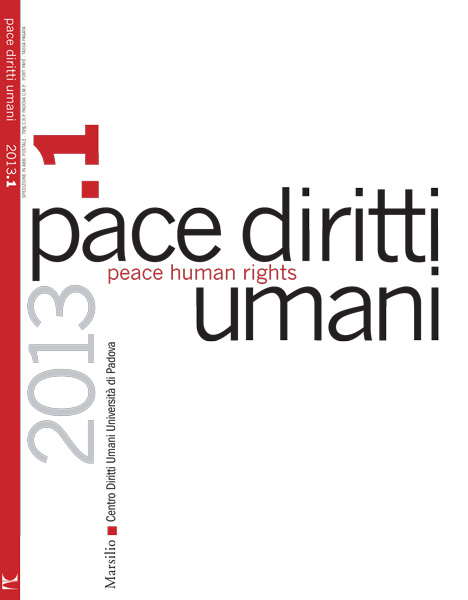Raccolte

L’adesione dell’Unione Europea alla Convenzione europea dei diritti umani
- Contenuto in
- Pace diritti umani - Peace Human Rights, 1/2013
- Tipologia pubblicazione
- Articolo / Saggio
- Pagine
- 65-83
- Lingua
- IT
The European Union Accession to the European Convention of Human Rights
Until the early 1970s, the protection of fundamental rights in Europe rested solely in the hands of the states, whose efforts were subject to the harmonising effects of the minimum standards of protection guaranteed under the framework of the European Convention of Human Rights (ECHR). However, the innovative case law of the Court of Justice, which identified human rights as general principles of the European legal order, determined the emergence of the European Union as a third protagonist of the protection of fundamental rights in Europe. The Treaty of Lisbon sought to reaffirm this multilevel system of protection, expressly declaring that «the Union shall accede to the European Convention for the Protection of Human Rights and Fundamental Freedoms».
The path towards the accession of the EU to the ECHR, however, was not without obstacles. Among the issues that the negotiators encountered, the most prominent ones included the relationship between the Court of Justice and the European Court of Human Rights, and the participation of the European Union to proceedings initiated under the ECHR, when EU legislation is involved in the alleged violation of fundamental rights. The final draft of the accession agreement has been now referred to the Court of Justice for an assessment of its compatibility with the treaties. Although the Court has not yet provided its opinion on the accession, the long, winding negotiations show that this important step towards a more uniform and certain protection of fundamental rights is still attracting significant debate. Despite the issues, however, the accession of the EU to the ECHR is likely to be a fundamental step towards the affirmation of the legitimacy and importance of the European Union in the eyes of the European citizens.

